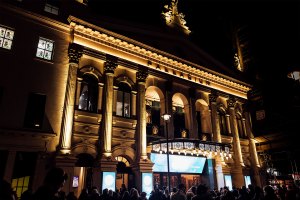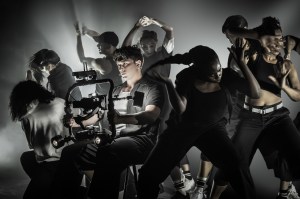Play to the gods and you win a theatregoer for life
Sarah Crompton reflects on her experiences back at ”Cyrano de Bergerac”
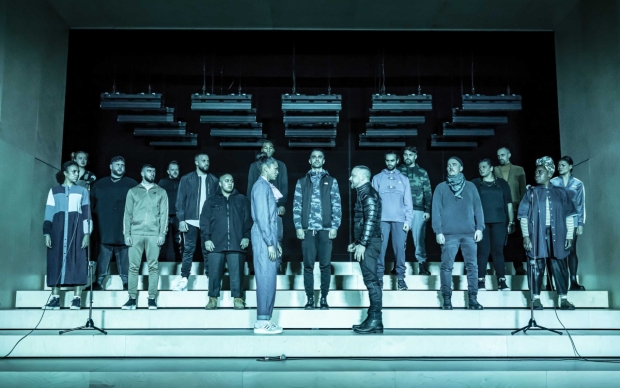
© Marc Brenner
It's an immutable law of the theatre-goer's life that you start at the top, go down, and then as your income starts to shrink again, head back up the stairs to the gods again. The cheap seats at every theatre are full of the very young or the increasingly old, with the stalls and circle the province of your middle years when incomes were more disposable and generous.
Or at least that's my experience. I fell in love with theatre from seats so far at the back or so high in the air that it was rarely possible to see the actors' faces. As I got a bit more money, I moved gradually into better seats, though often still impeded by overhanging balconies or inconvenient pillars.
My memory of Jack Lemmon's Long Day's Journey Into Night which made an incredible impact on me is still mixed with the sense of claustrophobia induced by sitting under the bowl of the Haymarket's balcony. In the same way my recall of Vanessa Redgrave in Orpheus Descending at the same theatre is mixed with a giddy sense of vertigo which occasionally distracted me from her towering performance as Lady.
But I notched up some great memories from strange perches: my first glimpse (and it was a pretty blurry one given the state of my eyesight) of Paul Scofield on stage was standing at the back of the Olivier on a student standby at the National Theatre in Volpone, which was also my first encounter with the playwright Ben Jonson. I fell in love with Stephen Sondheim catching a matinee of Side by Side by Sondheim at the Vaudeville in a seat where I could only see half of the action.
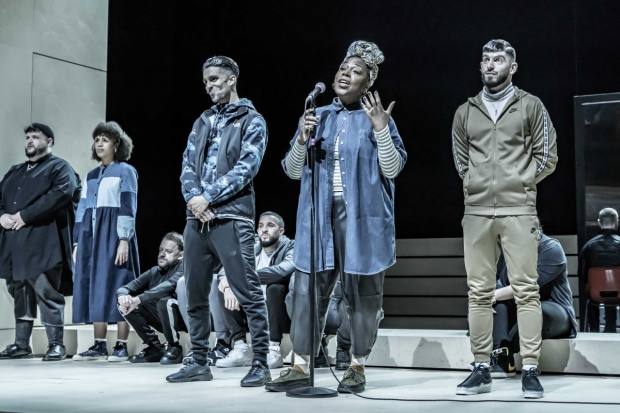
© Marc Brenner
I thought of those indelible, historic encounters from my past when I was watching James McAvoy in Cyrano last week. It is one of the most charismatic performances I've ever seen, in a radical production by Jamie Lloyd which comes complete with a bravura script (adapted from Rostand's 19th century original) by Martin Crimp.
But when I originally gave it a five-star rave, I'd been sitting in comfort in the stalls. (My companion memorably lent towards me after McAvoy had wooed Roxanne while sitting looking directly at the audience, and apparently into her eyes, and remarked: "I never knew I fancied him until now.")
But much though I had loved it, I wasn't entirely sure how it would stand up from the Harold Pinter's giddily-tiered balcony, the absolute top of a house that also boasts a dress circle and a royal circle. For one thing, it is more than three hours long and that's quite a long time if you are craning forward. For another, I felt so vertiginous when I was taking my seat, that I literally didn't dare move until the end.
I needn't have worried. McAvoy's powers of seduction and the production's sheer energy and insight both reached high into the atmosphere. The students and I were entranced, even if we couldn't see everything that was going on. (The moment when the graffitted slogan "I love words. That's all" is painted on the back of the set was completely lost to us, because of the angle at which we were watching.)
These are the seats from which a lot of young people have seen Lloyd's thrilling version of this classic play. They are deliberately and determinedly affordable. Seats in the balcony begin at £15 and rise to £39.50 (for the front rows; I was sitting towards the back). An adult (or student) ticket to see the film version of Cyrano, starring Peter Dinklage, in an evening performance at a West End cinema costs around £12.50, so £15 for live-action doesn't seem too excessive.
In addition, because Lloyd is so keen that people who don't normally go to theatres, give his productions a try, he has guaranteed an additional 2000 stalls seats at £15 which are available exclusively to under 30s, key workers, and those receiving government benefits, and are released each Monday for the production's London and Glasgow dates. For his next production – The Seagull, starring Emilia Clark – there are also 5,000 free tickets across the house being distributed to state secondary schools and community organisations who would not normally have access to theatre. You might argue it's not enough, but it is quite a big something – and is likely, if the reaction of the students was anything to go by – to hook a lot of people on theatre for life.
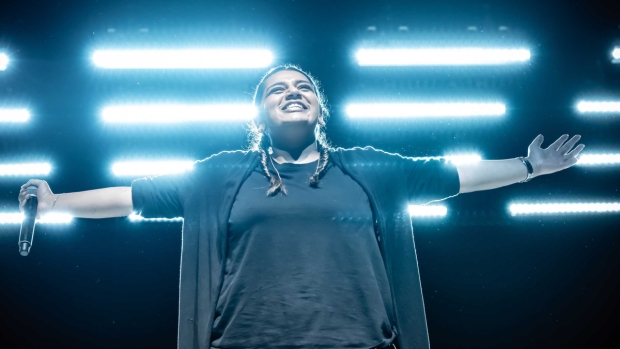
© Marc Brenner
Lloyd's blocking and general sense of how people relate to stage action is so strong, that even in the gods you are totally drawn in. I have only one complaint. When Margot Fonteyn was a young dancer, the choreographer Frederick Ashton taught her to win over an audience, by spending some of his time in rehearsals sitting in different parts of the theatre and checking he could see her eyes. She was taught to project.
It would be wonderful then, if actors could, every once in a while, raise their eyes heavenwards and give the impression that we exist. I don't expect the entire performance to be given for the benefit of the gods, but the occasional look to the audience of the future would guarantee our loyalty forever.










